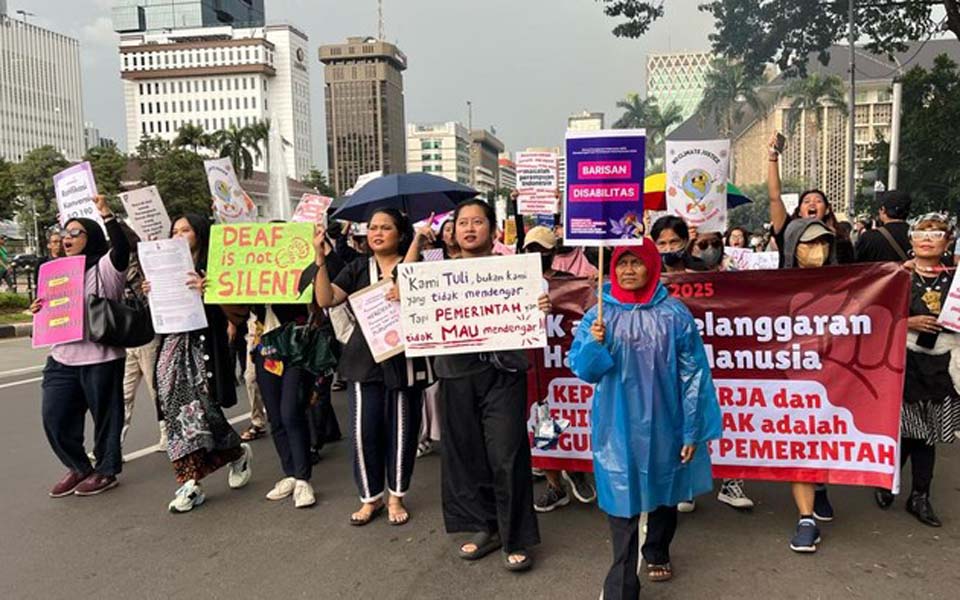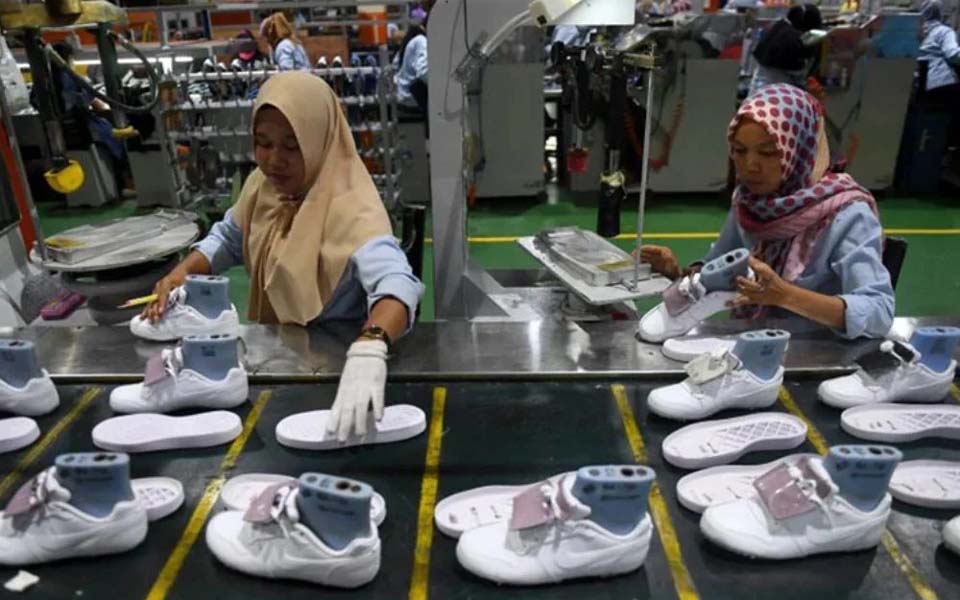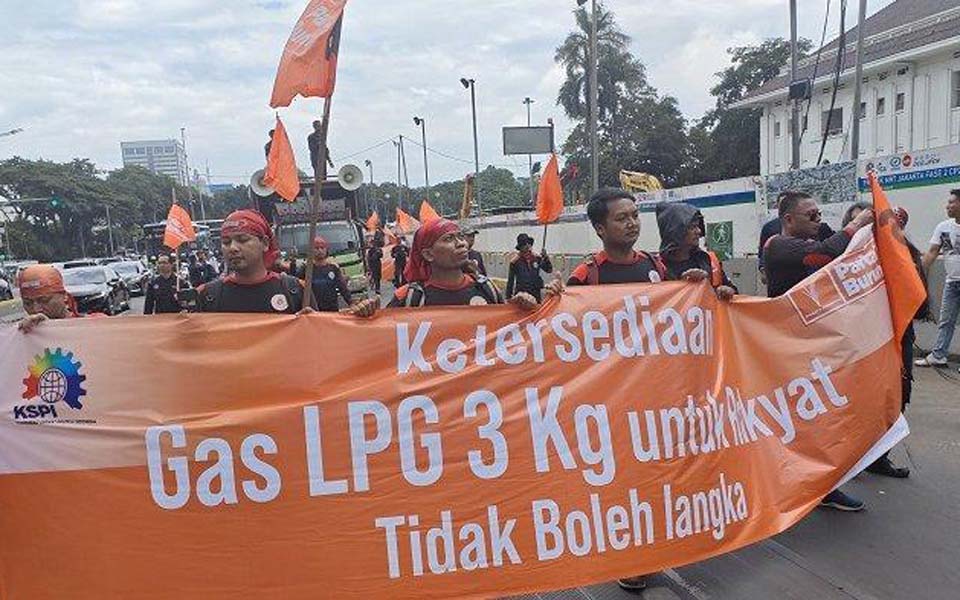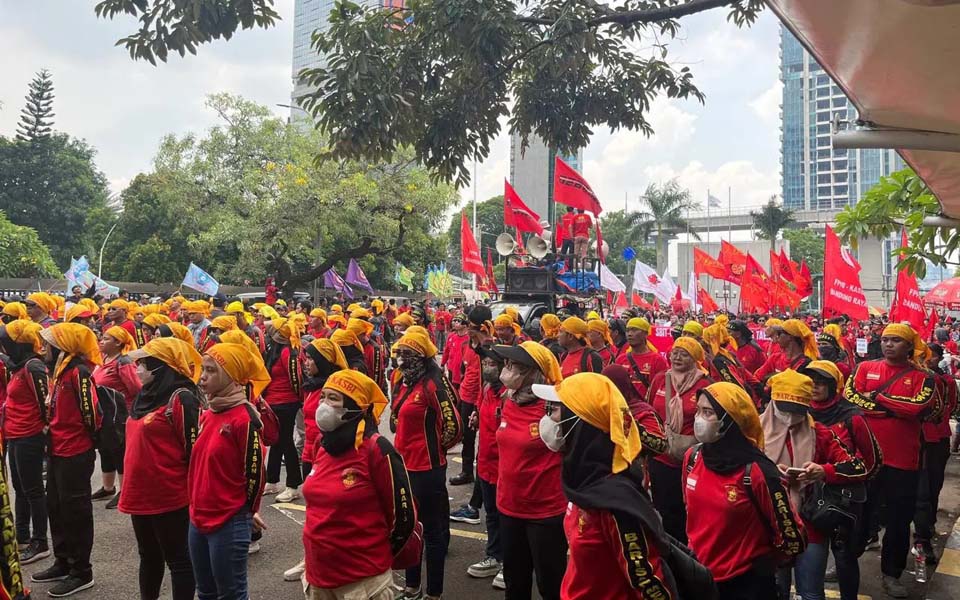Elise Dwi Ratnasari, Jakarta – There were still traces left over from the rain earlier in the morning. Although it was cloudy, it still felt hot under the intense heat of the sun.
Not many protesters had gathered yet but the enthusiasm shown by the women from various different organisations and backgrounds was already ablaze.
Coinciding with International Women’s Day (IWD), a rally was held at the House of Representatives (DPR) building in Jakarta. One by one they shouted out the ideas and demands of Indonesian women.
However they were all there under the same banner, namely the Indonesian Women’s March of Struggle, one of them was Tri.
“We must have the courage to articulate what we want, namely equality”, said Tri, a speaker from the organisation Perempuan Mahardhika (Free Women) on Thursday March 8.
In her speech, Tri said that the government fails to side with women, minority groups and the gay, lesbian, bisexual and transgender (LGBT) community.
There are all kinds of prohibitions ranging from mini-dresses and the Islamic State University (UIN) Yogyakarta’s recent ban of the cadar [niqab, a full Islamic veil which conceals the face but leaves the eyes exposed], which according to Tri are increasingly muzzling women’s freedom of expression. “From head to toe, women are always blamed”, she said.
The final issue that should be raised is the welfare of women workers. Many companies do not provide menstrual and maternal leave or breastfeeding rooms. “If these workers become pregnant, they are sacked”, she shouted.
In a survey recently conducted by Perempuan Mahardhika, they found that 50 percent of women workers felt afraid when they got pregnant. Perempuan Mahardhika national secretary Mutiara Ika said that there are two main reasons for this.
“Because one, they are afraid of losing their jobs. Two, they are afraid of losing their income”, said Ika following an Indonesian Women’s March press conference at the Jakarta Legal Aid Foundation (LBH) building in the Menteng area of Central Jakarta on Tuesday March 6.
Pregnancy, said Ika, is a means for companies to sack women workers because in this way they are freed from the obligation of providing pregnancy and maternal leave or paying wages during this time.
The group also highlighted the phenomena where women return to work only to find their period of employment has expired. This means that their period of employment is recalculated from zero so they are not entitled to maternity leave.
The survey involved 773 women workers in garment companies, mostly from the Cakung Bonded Zone (KBN) in Cakung, East Jakarta. Ika explained that the survey specifically looked at garment workers because 80 percent of them are women.
“In addition to this, although garment workers are in the formal sector their employment is in fact informal so while they appear to be formal workers in factories their jobs are still informal so their employment status is unclear and they lose their normative rights”, she added.
In order to follow up on the survey results, Perempuan Mahardhika is cooperating with the Women Workers Corner. During the Indonesian Women’s Parade, she wants to campaign on this issue. According to Ika the problem does not just occur in the manufacturing sector but also in other industries, including the media industry.
“We also made recommendations. Currently we’re developing social dialogue between companies, the government and trade unions. In our view trade unions are the strength so we want to discuss these issues so it becomes in the interest of trade unions to raise them”, said Ika. (chs)
[Translated by James Balowski. The original title of the article was ‘Dari Ujung Kaki Sampai Kepala, Perempuan Selalu Salah’.]















